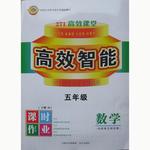题目内容
第二部分语言知识及应用(共两节, 满分35分)
第一节:完形填空(共10小题,每小题2分,满分20分)
阅读下面短文,掌握其大意,然后从21—30各题所给的四个选项(A、B、C和D)中,选出最佳选项,并在答题卡上将该项涂黑。
The Guardian newspaper once printed a story about a man who tripped over his shoelace in the Fitzwilliam Museum in Cambridge. Falling down some steps, he ___21____ three priceless Qing Dynasty vases, which fell to the ground and broke into more than 400 pieces. He was sitting there in ___ 22___ when the museum staff arrived. Everyone stood around in silence --- only the man kept pointing to the ___23___, saying, “There it is! That’s what made me fall.”
Man has been blaming others at least since Adam blamed Eve, and Eve blamed the serpent(蛇). Roman emperors liked to kill ____ 24___ who brought bad news; and in the Middle Ages a prince would often be given a “whipping boy” --- an unlucky servant who could be ___25____ whenever his master had misbehaved. Today, you’ll see how blaming others has turned into big __26_____ business. In one famous case, McDonald’s was ordered to pay $2.7 million to a woman who ____27____ burned herself with hot coffee. Although the amount was later ___28_____ to $480,000, this case ____29___ businesses so much that they began to create 30 for their products that even an idiot(傻子)would understand. For example, “Hot coffee can be dangerous” (take away coffee cups) and “Don’t pour liquids into your television set” (instruction booklet).
21. A. broke down B. knocked over C. crashed into D. slid down
22. A. terror B. amazement C. sadness D. shock
23. A. shoelace B. vase C. steps D. pieces
24. A. servants B. ministers C. messengers D. slaves
25. A. killed B. sentenced C. rewarded D. beaten
26. A. legal B. public C. lawless D. legendary
27. A. deliberately B. accidentally C. carelessly D. attentively
28. A. increased B. reduced C. raised D. dropped
29. A. surprised B. excited C. inspired D. terrified
30. A. advertisements B. posters C. warnings D. instructions
21---25 B D A C D 26---30 A B B D C
【解析】略

 高效智能课时作业系列答案
高效智能课时作业系列答案 捷径训练检测卷系列答案
捷径训练检测卷系列答案